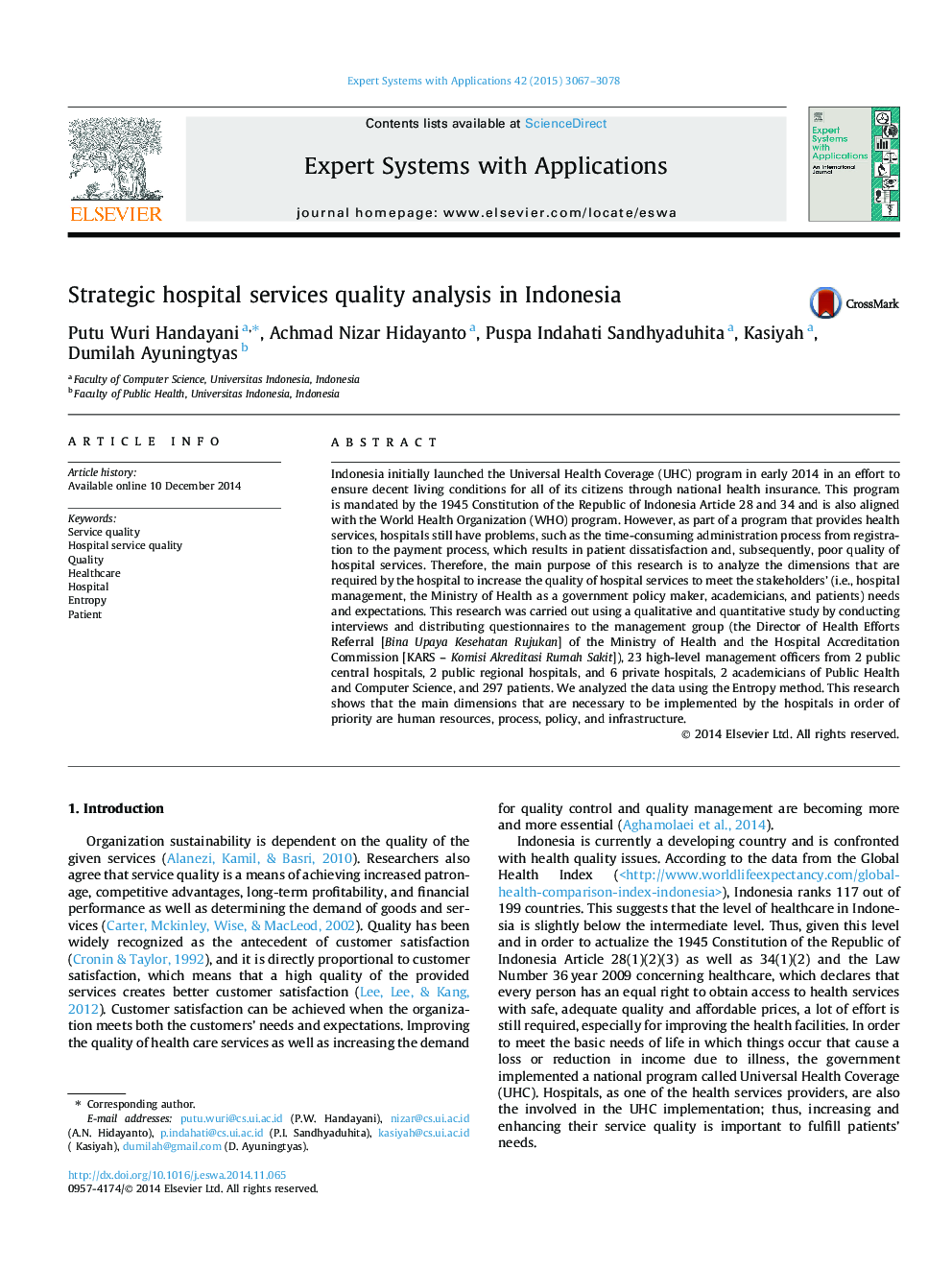| Article ID | Journal | Published Year | Pages | File Type |
|---|---|---|---|---|
| 10321861 | Expert Systems with Applications | 2015 | 12 Pages |
Abstract
Indonesia initially launched the Universal Health Coverage (UHC) program in early 2014 in an effort to ensure decent living conditions for all of its citizens through national health insurance. This program is mandated by the 1945 Constitution of the Republic of Indonesia Article 28 and 34 and is also aligned with the World Health Organization (WHO) program. However, as part of a program that provides health services, hospitals still have problems, such as the time-consuming administration process from registration to the payment process, which results in patient dissatisfaction and, subsequently, poor quality of hospital services. Therefore, the main purpose of this research is to analyze the dimensions that are required by the hospital to increase the quality of hospital services to meet the stakeholders' (i.e., hospital management, the Ministry of Health as a government policy maker, academicians, and patients) needs and expectations. This research was carried out using a qualitative and quantitative study by conducting interviews and distributing questionnaires to the management group (the Director of Health Efforts Referral [Bina Upaya Kesehatan Rujukan] of the Ministry of Health and the Hospital Accreditation Commission [KARS - Komisi Akreditasi Rumah Sakit]), 23 high-level management officers from 2 public central hospitals, 2 public regional hospitals, and 6 private hospitals, 2 academicians of Public Health and Computer Science, and 297 patients. We analyzed the data using the Entropy method. This research shows that the main dimensions that are necessary to be implemented by the hospitals in order of priority are human resources, process, policy, and infrastructure.
Related Topics
Physical Sciences and Engineering
Computer Science
Artificial Intelligence
Authors
Putu Wuri Handayani, Achmad Nizar Hidayanto, Puspa Indahati Sandhyaduhita, Kasiyah Kasiyah, Dumilah Ayuningtyas,
